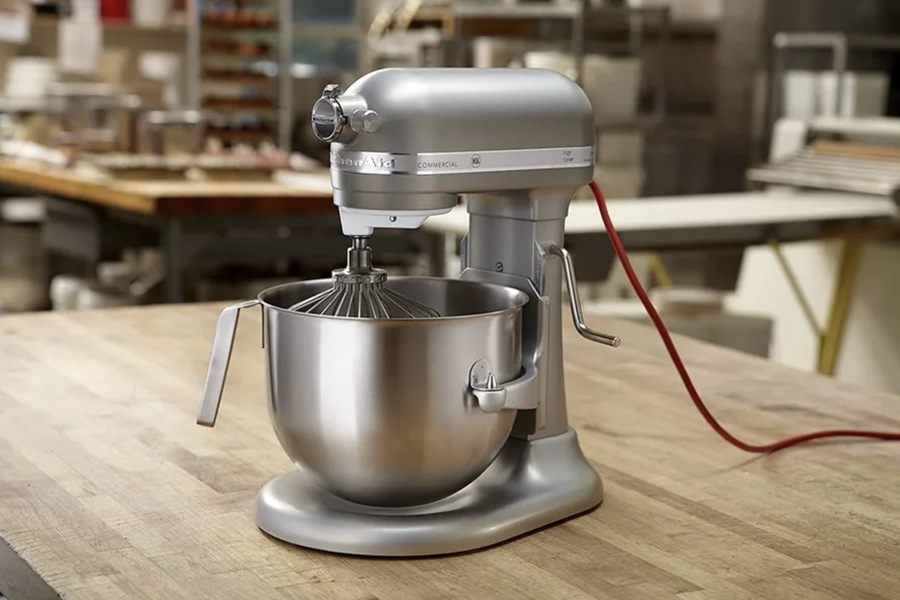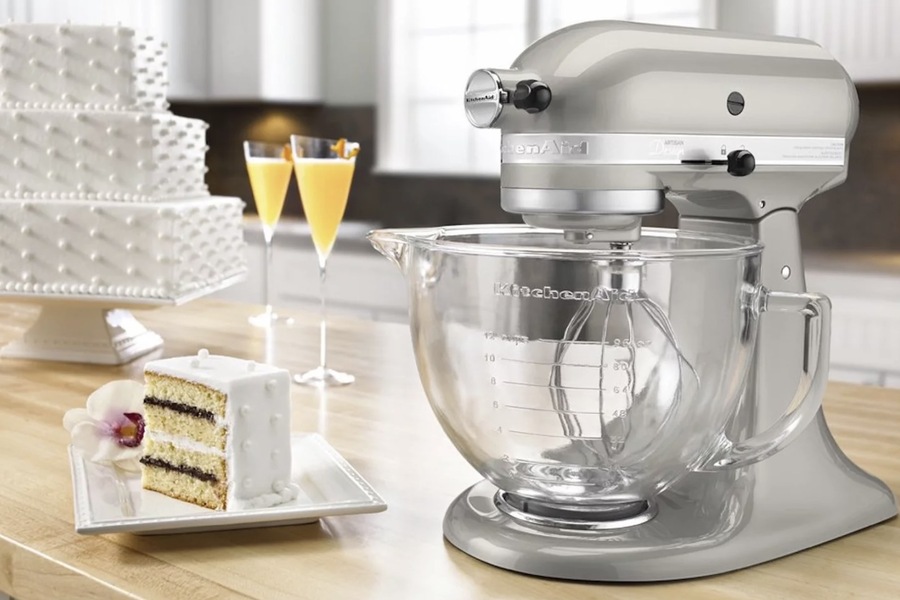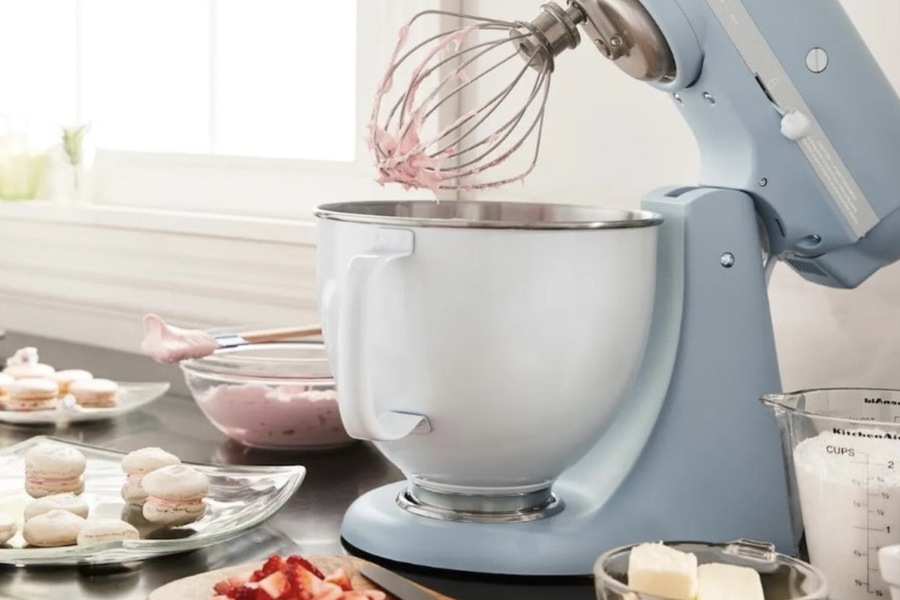A professional mixer is an indispensable piece of commercial kitchen equipment for any establishment, whether you’re running a cafe, restaurant, bakery, or pastry shop. These versatile machines are designed to handle a range of culinary tasks, from chopping and blending to whipping cocktails, creating emulsions, making purees, and even crushing ice and frozen products. Given their heavy-duty design, professional mixers help elevate the quality of service in food establishments while boosting productivity. Whether you’re mixing, whipping, or kneading, a professional mixer can make all the difference in the speed and consistency of your preparations, solidifying its place as essential “commercial kitchen equipment.
In this guide, we’ll dive into the various types of mixers available, when and where each type is most useful, and how to choose the right mixer based on your business’s needs.
Types of Mixers
When selecting a professional mixer, it’s crucial to understand the different types available and their respective capabilities. Below are the three main categories of mixers typically found in commercial kitchens:
1. Hand Mixers
Hand mixers are compact, lightweight, and portable devices. They are best suited for small kitchens and culinary spaces where mobility and flexibility are prioritized. A hand mixer is ideal for mixing small batches of dough, whipping cream, preparing sauces, or emulsifying ingredients for recipes. These mixers often come with multiple speed settings and attachments, such as whisks and beaters, allowing chefs to adapt them to a variety of recipes.
When To Use A Hand Mixer
If your kitchen is limited in space or you work in a small cafe or food truck.
When flexibility is important, such as in culinary studios where the mixer might need to be moved frequently.
Perfect for smaller tasks like whipping egg whites, mixing batters, or preparing light sauces and purees.

Advantages
Compact size and portability make them easy to store and move.
Typically less expensive than larger mixers, making them ideal for small businesses or culinary professionals on a budget.
Easy to clean, with detachable parts that can be quickly washed.
Drawbacks
Not suitable for heavy-duty tasks or large quantities of ingredients.
Limited capacity and power compared to stand and planetary mixers.
2. Stand Mixers
Stand mixers are more powerful than hand mixers and are designed for larger kitchens, such as restaurants, bakeries, and catering services. A stand mixer consists of a motorized base with a large mixing bowl, which remains stationary while the mixing attachments (like dough hooks or whisks) rotate. Stand mixers are highly efficient and can handle larger volumes of ingredients, making them indispensable for high-demand environments. They can knead dough, beat large quantities of batter, and whip creams and other light ingredients with precision.
When to use a stand mixer
For large-scale kitchens, bakeries, and pastry shops where high volumes of dough, batters, and mixtures need to be processed daily.
Ideal for bakeries or restaurants with consistent high production, as they are capable of mixing large quantities efficiently.
Perfect for kneading heavy doughs, such as those used in bread or pizza, which require more power than a hand mixer can provide.
Advantages
Powerful motors that can handle heavy-duty tasks such as kneading thick doughs or mixing large batches.
Equipped with various attachments, making them suitable for a wide range of mixing and whipping tasks.
Sturdy design ensures stability, even when mixing dense ingredients.
Time-saving, as they allow for hands-free mixing while other kitchen tasks are being handled.
Drawbacks
Larger and bulkier, which requires more storage space and a dedicated spot on the kitchen counter.
Typically more expensive than hand mixers.
Not as portable, limiting flexibility.
3. Planetary Mixers
Planetary mixers are one of the most versatile pieces of equipment available in a commercial kitchen. They feature a unique design where the mixing tool rotates around its own axis while moving in a circular path around the bowl. This ensures that the ingredients are mixed more uniformly and efficiently, making planetary mixers the preferred choice for both professional and home kitchens. These mixers come with multiple attachments, such as dough hooks, whisks, and beaters, making them suitable for preparing doughs, creams, and a variety of fillings.
When to use a planetary mixer
For commercial kitchens that require versatility in their equipment, as planetary mixers can be used for mixing, whipping, and kneading various types of ingredients.
Suitable for both small businesses and large establishments, as they come in different capacities and power levels.
Perfect for creating consistent, high-quality mixtures, whether you’re making bread dough, whipping cream, or preparing cake batter.
Advantages
Highly versatile, with various attachments that can handle different culinary tasks.
Ensures even and consistent mixing due to the unique planetary motion.
Suitable for both small batches and large quantities, depending on the model.
Can handle a wide range of ingredients, from light creams to heavy doughs.
Drawbacks
More expensive than basic hand or stand mixers.
Larger models can be bulky and may require significant space in the kitchen.
Maintenance may require specialized attention, especially in more advanced models.
When Are They Ideal?
Understanding when and where each type of mixer is ideal will help you make an informed decision for your kitchen.
Hand Mixers
These are best for smaller establishments such as cafes or small restaurants that don’t require processing large quantities of ingredients. Hand mixers are also great for home kitchens or culinary studios where flexibility and mobility are essential.
Stand Mixers
A must-have for larger kitchens such as bakeries, pastry shops, and large restaurants. These mixers excel in processing large volumes of dough, batters, and creams, making them ideal for high-demand environments where productivity is key.
Planetary Mixers
Perfect for businesses looking for an all-in-one solution that can handle a variety of tasks. From whipping to kneading, planetary mixers are versatile and efficient, making them suitable for both home use and small to large-scale commercial kitchens.

How to Choose a Professional Mixer
When selecting the right professional mixer for your kitchen, several key factors should be taken into consideration. Here’s what you need to keep in mind:
1. Production Volume
Evaluate the production needs of your business. If you’re running a small cafe or bakery with lower production volumes, you may not need the most powerful or high-capacity mixer. Compact, cost-effective models will be sufficient. However, for larger kitchens, bakeries, and restaurants that process large volumes of dough, batters, or sauces daily, investing in a larger, more powerful mixer will ensure you keep up with demand efficiently.
2. Product Type
Consider what types of products you’ll be mixing. If you’re working with heavy, dense doughs (like bread or pizza dough), you’ll need a stand or planetary mixer with a powerful motor. For lighter tasks, such as whipping cream or making custard, a hand or stand mixer might be more appropriate.
3. Space Constraints
Measure your available kitchen space. If your kitchen is compact, a hand mixer or a smaller stand mixer may be the best choice. Stand and planetary mixers, while highly efficient, can take up more space, so it’s important to factor in whether you have the room for a larger, bulkier machine.
4. Portability and Flexibility
If your kitchen setup requires portability and flexibility, such as in culinary schools or food trucks, hand mixers offer a lightweight and portable solution. Stand mixers, while powerful, are not as easy to move around, so they are best suited to kitchens where they can remain in a dedicated spot.
5. Functionality and Settings
Different mixers come with various features and settings. Choose a mixer that meets your specific needs—whether that’s multiple speed settings, various attachments for versatility, or automatic programs for specific recipes. Mixers with advanced functionality will allow your kitchen staff to work more efficiently and with greater precision.
Conclusion
Choosing the right professional mixer is essential for maintaining efficiency and ensuring high-quality results in your kitchen. Whether you opt for a hand mixer, stand mixer, or planetary mixer, consider the specific needs of your business, including production volume, product type, available space, and the level of functionality required. By making the right investment, you can improve the productivity of your kitchen and ensure consistent, high-quality products. Be sure to consult with equipment suppliers or culinary professionals to get tailored recommendations that suit your unique kitchen requirements.
A well-chosen mixer can transform your kitchen operations, making it easier to create delicious products while saving time and labor.

Baseball fan, shiba-inu lover, guitarist, reclaimed wood collector and doodler. Operating at the junction of art and programing to create not just a logo, but a feeling. I’m fueled by craft beer, hip-hop and tortilla chips.
